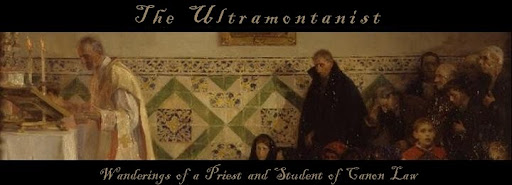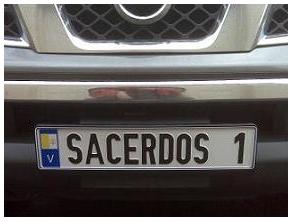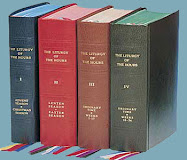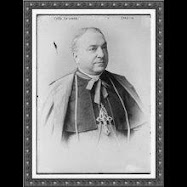
Like all others, I suppose, I approach this weekend - the implementation of the newest translation of the Roman Missal - with some trepidation. But as I told my congregation last week at the two parishes, we'll probably look back at ourselves in six months and wonder what all the fuss was about. We're as prepared as we likely can be, and there will no doubt be some stumbling along the way ("and with your spirit, and with your spirit, and with your spirit..."), but I am of the mind that this will be only minimally disruptive. I will be able to return to celebrating Mass with my eyes closed before too long. And in the end we will be better for this, if for no other reason than it will force us to be more attentive and appreciative of the words we speak to God.

I heard someone (a priest friend) say a few months ago that this whole process had gotten him to pay closer attention to the words he was currently using in celebrating the Mass; how the language of many of the orations seemed to be directing God to do this or that for us; that the translation we have been using for so long now is in the indicative voice, rather than the more pleading tone of the subjunctive voice. I have to say that it got me noticing the same thing. As one who has had the privilege of celebrating in the Extraordinary Form of the Roman Rite (the "Latin Mass," aka "Tridentine Mass") for many years now, I have to say that the difference is striking. The voice of the Mass in the Extraordinary Form is almost always in the subjunctive. A common phrase in all the orations is "quaesumus Domine" ("we humbly entreat you, O Lord"). I must confess that I think it a good thing that we are making a return to this type of language in the Ordinary Form. Not because it lowers our status (I don't think it does), but rather because it elevates God's. The inconvenience involved for me to learn some new words seems to pale in comparison to the benefit gained in speaking in a more humble way to God.
Tomorrow morning I will celebrate for the last time using the text of the Mass which has become so familiar to me in my ten years as a priest. I can literally do it with my eyes closed. As is so often the case, there is a certain sadness in parting with comfortable familiarity. I do think, however, that what we are receiving is an improvement. Therefore, I look forward to this weekend!
As an aside, the new translation has brought to birth a whole new corpus of liturgical music that evokes the rich musical tradition of the Church. Informed by - and in keeping with - the conciliar documents such as Sacrosanctum Concilium, they give pride of place to Gregorian chant, all while fostering full, active, and conscious participation of the faithful in the Mass (hardly anything bugs me more in the Ordinary Form than the use of Mass settings - both new and ancient - that the people can't sing and have the air of being mere "performance"). I've been following with great interest blogs such as chantcafe.com that have been chronicalling these new developments, and I include a link below to some particularly well done (in my humble estimation) settings of the Gloria. Check them out:
http://www.chantcafe.com/2011/10/more-english-mass-settings-watershed.html






























